Acne is a very common skin condition – research shows that around 85% of Australians are affected by it at some point in their life. Although we tend to believe that this is a problem that we only experience during our teenage years, that’s not entirely true. If you suffer from acne, you may be interested to understand exactly what acne is, its causes and potential treatment options.
What Is Acne?
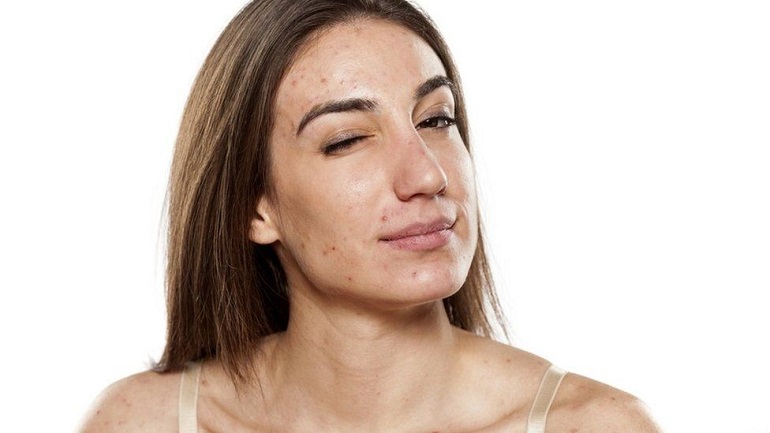
At its core, acne is a skin problem that starts when the pores of the face become clogged. An individual may experience acne in the form of pimples, blackheads, pustules, cysts and whiteheads. While some people are blessed with clear, acne-free skin, others may find that acne is a challenge they will always face. It can also appear in different levels of severity. Some individuals experience acne periodically. Other may suffer from mild or moderate acne. Those with severe acne can experience dozens or even hundreds of pimples all over their face, neck and back.
What Causes Acne?
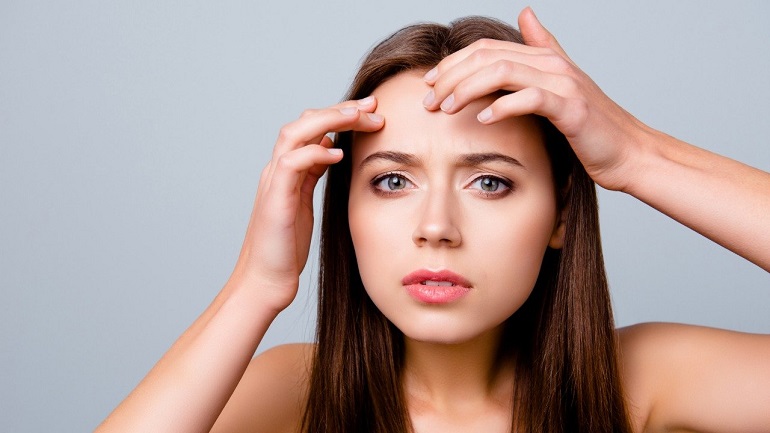
Acne happens when the pores become blocked with oils, dead skin cells, or bacteria. It can be caused by high hormone levels during puberty as well as due to hormonal changes caused by birth control pills, menstrual cycles, or pregnancy. Medicines such as antiseizure and antidepressants can also cause acne. A family history of acne or sensitive skin increases your risk. Oil-based skincare or hair products or suntan oil can make acne worse. Rubbing your skin too hard or picking at your pimples can also aggravate acne.
How to Get Rid of Acne?
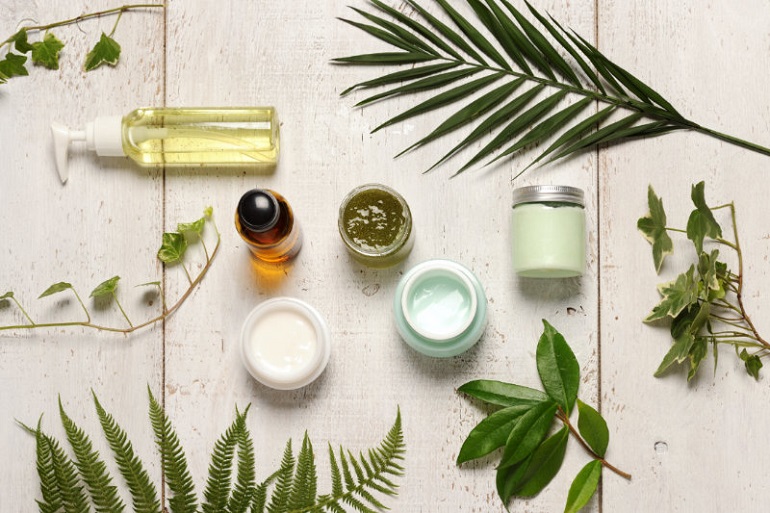
The best treatment will mostly depend on the cause of your acne. Generally, finding the right natural skin care products for your skin type can be a step in the right direction, but in some cases, a prescribed acne treatment may be the smartest solution.
Mild Acne
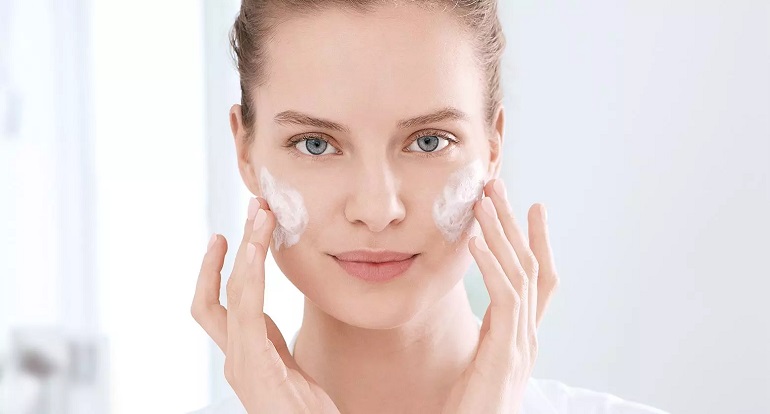
Mild acne can be treated with various over-the-counter cosmetic skin care products including soaps, gels, pads, creams and lotions. Keep in mind that alcohol-based gels dry the skin and are better suited for oily skin. If you have sensitive skin, your best bet is using creams and lotions. For best results, look for cosmetic skin care products that contain the following active ingredients.
- Benzoyl peroxide – slows the production of sebum, kills bacteria and accelerates the replacement of skin;
- Resorcinol – helps break down blackheads and whiteheads;
- Salicylic acid – assists the breakdown of blackheads and whiteheads and helps reduce inflammation and swelling;
- Retin-A – helps clear pores through cell turnover;
- Azelaic Acid – stops sebum eruptions, empowers cells that line the follicles and reduces bacterial growth.
Moderate to Severe Acne
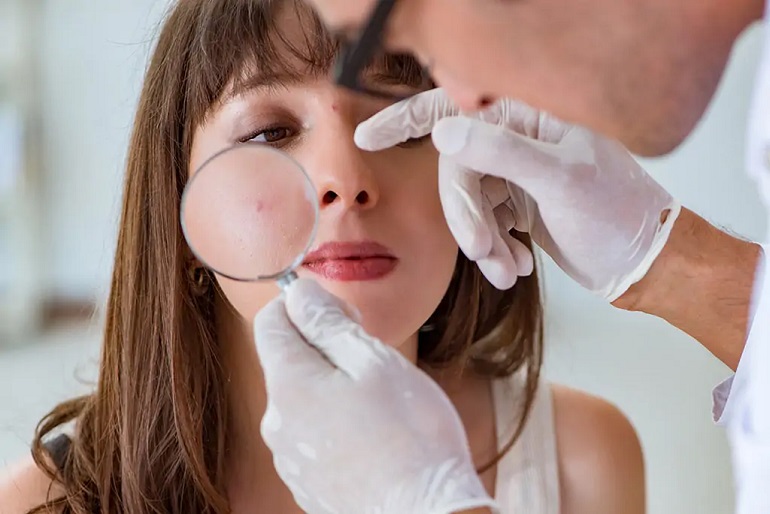
For more severe cases of acne, visiting a skin specialist or dermatologist may be necessary. They may prescribe you a stronger cream or gel, or an oral or topical antibiotic. If an acne cyst becomes severely inflamed, it may rupture and this may lead to scarring. In this case, the specialist may recommend a corticosteroid injection to help prevent scarring, reduce inflammation and speed up healing. After that, oral antibiotics may be prescribed for up 6 months to combat the growth of bacteria and reduce inflammation. Topical antimicrobials may also be prescribed for patients with moderate to severe acne. A derivative of vitamin A – topical retinoids, helps unclog the pores and prevent whiteheads and blackheads from developing.
How to Get Rid of Acne Scars?
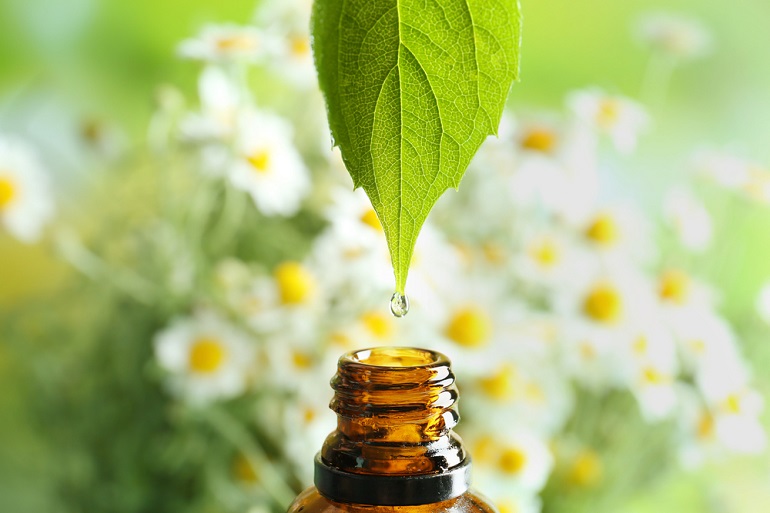
Usually, pimples tend to heal into healthy, blemish-free skin. However, that’s not always the case. Those who experience moderate to severe acne may end up with some scars from breakouts in some parts of their face. The good news is, not all scarring is truly permanent. With the right skin care products and doctor-endorsed prescriptions, you can reduce the discolouration and appearance of these scars.
One effective ingredient that can help you minimize the appearance of scars is salicylic acid. It is found in many acne skin care products as it helps clear dirt, dead skin cells, and other debris that leads to forming acne. This ingredient also helps reduce swelling and redness in the area, which may minimize the appearance of scarring. Topical retinoids may also help get rid of acne scars. This ingredient has the ability to block inflammation, reduce acne lesions and speed up cell regeneration.
A lot of people turn to natural remedies to help clear up their acne scars. Some of these natural remedies include coconut oil, raw honey, shea butter, aloe vera gel, baking soda and lemon juice. However, the science behind them is unclear and sometimes they can cause further irritation or other problems. So, use them with caution.
A vigilant sun-protection routine is also a must when treating acne scars. Wearing sunscreen with an SPF of at least 30 each day, regardless of whether it is overcast or humid outside, will help prevent causing more damage to your skin.
